What's New
Displaying results 2841 - 2850 of 4914
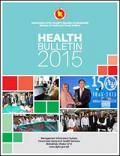
Resource | Publications,
This publication primarily intends to highlight the activities and healthcare situation in Bangladesh during 2014 but, based on availability, 2015 data are also included in some cases.
2015 is a year of great significance in terms of newer public health visions, both for Bangladesh and other Member States of the United Nations. The UN Millennium Development Goals (MDGs) will conclude this December, and we will have to confront the challenges of the newly-set Sustainable Development Goals, abbreviated as SDGs. Health Bulletin 2015 makes specific mention of this transition, in relevant chapters. Our experiences with the MDGs will guide us in our pursuit of addressing the new challenges in the coming SDGs.
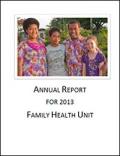
Resource | Publications,
The year 2013 was a year of great achievement in regards to scaling up programs, strengthening and advocating for more support in certain areas of Family Health. The year was strengthened for the Unit with the edge of Monitoring and Evaluation added to the Unit as a strong pillar which added to the Unit a proper planning process.
There were lessons learnt in 2013 that would help improve 2014, some of these include proper planning with partners for implementation of programs though an important component for the whole unit was to secure staffing for the various programs under Family Health to ensure smooth roll out and closer follow up by project officers, such as Child health and Reproductive Health.
Family Health is committed to make a difference in the areas of Family Health for the people of Fiji.
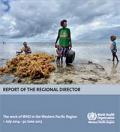
Resource | Publications,
Member States in the WHO Western Pacific Region made significant gains over the past year in improving health outcomes and strengthening health systems. Communicable disease morbidity and mortality continued to decline, and noncommunicable diseases and their risk factors were more effectively addressed. Real progress occurred in the move towards universal health coverage, and the Region is now better equipped to handle threats posed by emerging infectious diseases, emergencies and disasters.
WHO reforms continued to focus on tailoring support to the specific needs and priorities of the 37 countries and areas that make up the Western Pacific Region. Often that meant going beyond traditional global and regional approaches to develop more localized initiatives.
WHO’s work, however, is far from complete. More needs to be done in fighting difficult diseases such as malaria and tuberculosis, as well as neglected tropical diseases. We must strengthen preparedness and better mitigate the risks associated with emergencies and disasters. Recent challenges, including the health impacts of climate change, also must be addressed if we are to achieve even better health outcomes.
This brief summary of achievements and challenges serves as an introduction to the work of WHO in the Western Pacific Region for the year that ended on 30 June 2015.
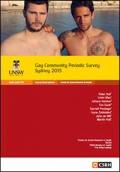
Resource | Publications,
The Sydney Gay Community Periodic Survey is a cross-sectional survey of gay and homosexually active men recruited at a range of gay community sites in Sydney. Since 1996, the project has been funded by the NSW Ministry of Health and supported by ACON and Positive Life NSW. The major aim of the survey is to provide data on sexual, drug use and testing practices related to the transmission of HIV and other sexually transmissible infections (STIs) among gay men in Sydney. The data presented in this report are from the period 2011 to 2015.
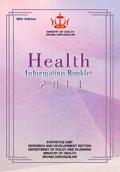
Resource | Publications,
The health information that are published includes data relating to the health status of the nation and are vital in supporting evidence based policy making and planning of health care services in the country. Some of these information also presents key indicators for the national health strategies as well as part of the United Nations Millennium Development Goals and the Sustainable Development Goals. The health data produced also aligns with WHO health statistics – indicator compendium.
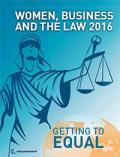
Resource | Publications,
This edition of Women, Business and the Law highlights the World Bank Group’s commitment to generating objective data and building knowledge about gender equality. The report draws on readily comparable data across seven indicators: accessing institutions, using property, getting a job, providing incentives to work, building credit, going to court and protecting women from violence. It expands data coverage to 30 more economies than the previous edition in order to enhance global understanding of laws that affect women’s economic opportunities.
The data reveal the magnitude of the challenge that the world still faces in the quest for gender equality. It seems clear from the evidence that while governments are working progressively to provide equality of opportunity for women, there are still laws that differentiate between women and men in ways that affect women’s economic prospects: of the 173 economies covered, 155 have at least one law that differentiates between women and men. These inequalities impede development, hinder prosperity and undermine national competitiveness.
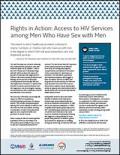
Resource | Publications,
When compared with the general population, men who have sex with men (MSM) are more likely to be HIV-positive but less likely to have access to safe and competently delivered HIV services. In an effort to illuminate the barriers and facilitators of HIV service utilization for MSM, the Global Forum on MSM & HIV (MSMGF) conducted the third biennial Global Men’s Health and Rights Study (GMHR). This brief presents data from the 2014 GMHR describing access to HIV services among MSM and discusses the implications for strengthening the global HIV response.
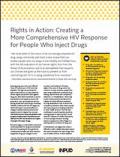
Resource | Publications,
Pervasive stigma, social isolation and harsh criminal penalties for drug use exacerbate the risk of HIV acquisition and impede access to HIV prevention, care and treatment services among people who inject drugs. This brief seeks to help policymakers and program implementers understand and address the HIV needs and human rights of people who inject drugs.
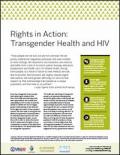
Resource | Publications,
Every day, transgender (trans) people face human rights violations that harm their health and well-being, limit their opportunities, and increase their vulnerability to HIV. In order to meet the ambitious UNAIDS 90-90-90 targets, greater understanding of and attention to the rights and needs of trans people is needed. This brief seeks to strengthen the ability of programmers and policymakers to understand and respond to HIV risks faced by transgender people around the world in order to reduce the burden of HIV in and protect the rights of trans communities.

Resource | Guidelines,
These Guidelines on the management of latent tuberculosis infection were developed in accordance to the requirements and recommended process of the WHO Guideline Review Committee, and provide public health approach guidance on evidence-based practices for testing, treating and managing LTBI in infected individuals with the highest likelihood of progression to active disease. The guidelines are also intended to provide the basis and rationale for the development of national guidelines. The guidelines are primarily targeted at high-income or upper middle-income countries with an estimated TB incidence rate of less than 100 per 100 000 population. Resource-limited and other middle-income countries that do not belong to the above category should implement the existing WHO guidelines on people living with HIV and child contacts below 5 years of age.





